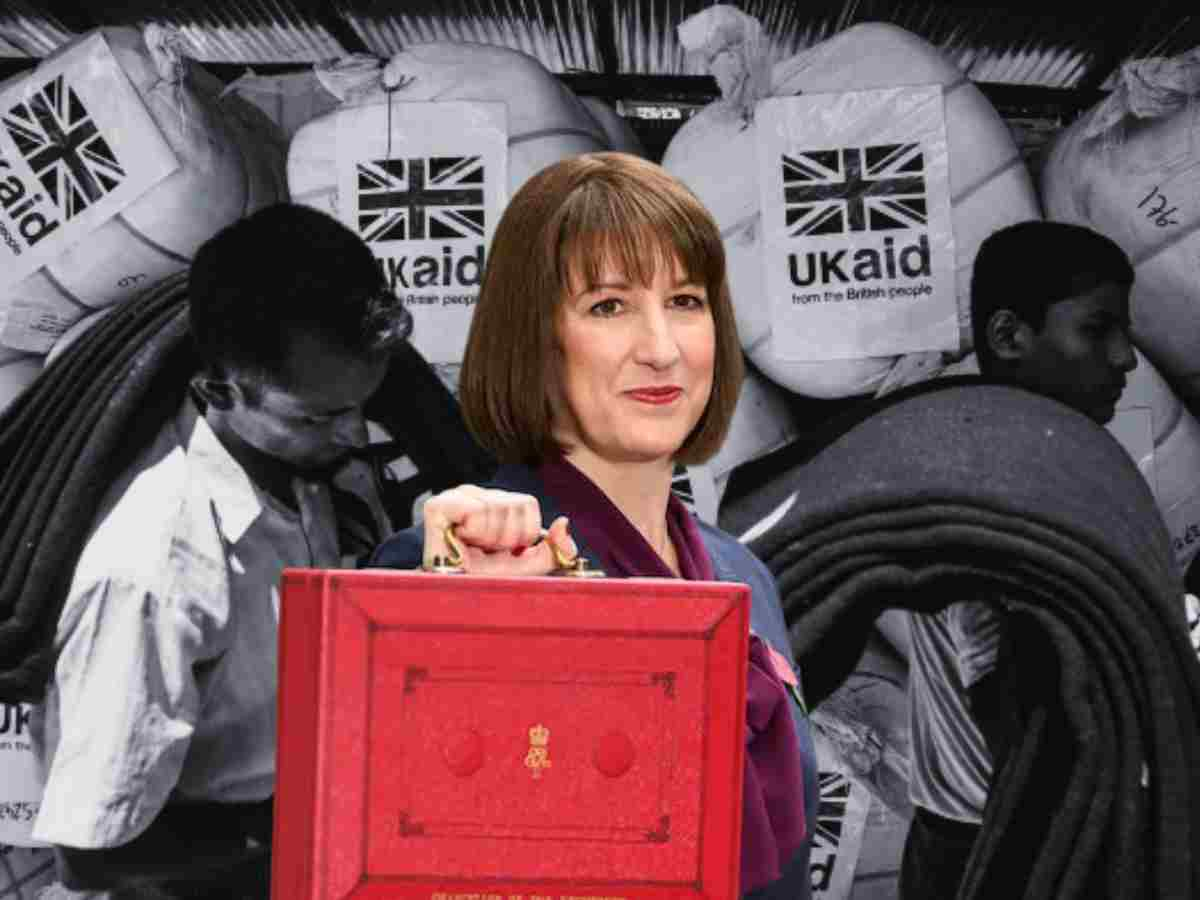Chancellor Rachel Reeves presented the Labour Party’s first budget since being elected to government on Wednesday 30 October. However, what has not been widely reported is that she slashed the international aid budget – seemingly veering further to the right.
International aid budget: cutting more than the Tories
As BBC News reported:
Reeves chose not to renew a £2.5bn top-up to the UK’s overseas aid budget introduced by the Tories to compensate for the huge amount of foreign aid being spent housing refugees and asylum seekers in hotels.
The budget includes departmental allocations for the Foreign, Commonwealth and Development Office (FCDO) for 2024-25 and 2025-26 and drops the Official Development Assistance (ODA) budget down from 0.58% of gross national income (GNI) in 23-24 to 0.5% of GNI for 24-25 and 25-26, which means a real terms cut for UK aid.
In the Autumn Budget, Reeves’s decision mean that the UK international aid budget will drop from £15.3bn (0.58% of GNI) in 2023 to £13.3bn in 2024-25 and £13.7bn in 2025-26 (0.5% of GNI)
Maintaining UK aid at 0.5% for 24-25, while UK aid spent on refugees within the UK is projected to stay at near record levels (estimated at 28% (£3.8bn) of the total) will result in a significant real- terms cut for UK aid programmes globally.
Reeves made a commitment to bring asylum costs down, including by ending expensive hotel accommodation. However she made no tangible commitment to changing the current approach of using the UK international aid budget to cover the costs.
A commitment to restore UK aid spending to its legally required 0.7% of GNI, but since the government has chosen to keep the previous government’s fiscal rules this means that the OBR’s latest forecast shows that the tests to return to 0.7% will not be met within this Parliament (2024-28/29).
Non-governmental organisations and charities have hit back.
‘Short sighted’ on international aid budget
In response to Reeves’s announcement over the international aid budget, Gideon Rabinowitz, director of policy and advocacy at Bond, the UK network for NGOs, said:
The government has made the short-sighted decision to slash UK aid in the Autumn budget. By refusing to renew the top-ups made by the previous government to offset the rising costs of housing asylum seekers in the UK, UK aid will plummet this year.
We must support asylum seekers, but funding should come from a dedicated budget – not at the expense of other marginalised communities around the world. By sticking to the previous government’s restrictive fiscal rules for returning to 0.7%, the government not only jeopardises support for those facing poverty, humanitarian crises and climate change, but it also reneges on its promise to return to 0.7% and re-position itself as a reliable development partner ahead of upcoming summits like the G20 and COP29.
Hannah Bond, co-CEO at ActionAid UK said:
We are profoundly disappointed that the Chancellor has chosen not to uplift the Official Development Assistance (ODA) budget in the Autumn statement today. For a government that came to power pledging to reset its global relationships and place tackling climate change at the core of its foreign policy, this statement is an indication it plans to do anything but.
After the previous government took a wrecking ball to projects aimed at tackling gender inequality, Labour is following in their footsteps by further abandoning women and girls when they need it the most. We urge them to rethink this decision and consider what it signals to the rest of the international community.
Labour’s ‘vision’ will fail
Selena Victor, senior director of policy and advocacy for Mercy Corps Europe said:
While it is some relief to see the UK maintain its current level of ODA – this remains at a 17-year low. We urge the government to return to spending 0.7% of GDP on oversees aid urgently. Times are tough indeed, but investing in development – in stability, poverty reduction, disease prevention, education, economic development, peace – is a down payment on our shared future prosperity. While failure to do so is just building future costs – in terms of both humanitarian needs and lives lost.
Tim Wainwright, chief executive of WaterAid said of Reeves’s cut to the international aid budget:
The UK government’s Autumn Budget aims to “fix the foundations to deliver on its promise of change” – a mandate of change that includes delivering a global reset on climate and international development. Yet, todays’ Autumn Statement has failed to progress this agenda.
With 1 in 10 people worldwide lacking access to clean water, Labour’s manifesto vision of a world free from poverty on a liveable planet” will fail unless the UK does more to invest in water – the global foundation of life, prosperity, health and security.
Looking forward, Labour must urgently restore its levels of Official Development Aid to support those on the frontline of the global water and climate crisis and ensure stability and prosperity at home and abroad – only then can we truly fix the foundations of life.
Featured image via the Canary




